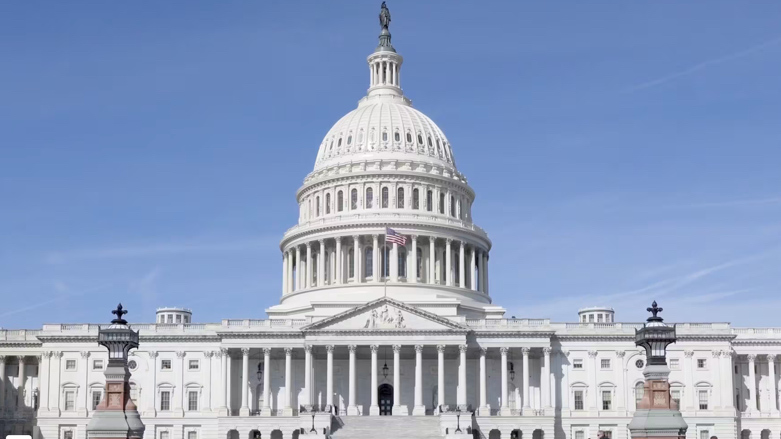KRG Interior Minister Meets with House Armed Services Committee Members
The discussion in all three meetings stressed the close security ties between the US and the Kurdistan Region.

WASHINGTON DC, United States (Kurdistan 24) – On Tuesday, in his second day of official meetings in Washington, the Interior Minister of the Kurdistan Regional Government (KRG), Rebar Ahmed, held three meetings on Capitol Hill with members of the House Armed Services Committee. The discussion in all three meetings stressed the close security ties between the US and the Kurdistan Region.
The minister’s meetings included one with Rep. Mike Rogers (R, Alabama), Chairman of the committee. Ahmed thanked Rogers “and other members of Congress for their consistent support to the Peshmerga and people of Kurdistan,” the KRG Representative in Washington, Bayan Sami Abdul Rahman, tweeted following that meeting.
The two men also “discussed security challenges that concern us and our friends, and US support for a strong Kurdistan within a sovereign Iraq,” she said.
Minister @RayberAhmed thanked @RepMikeRogersAL, Chairman of the House Armed Services Committee, and other members of Congress for their consistent support to the Peshmerga and people of Kurdistan. They discussed security challenges that concern us and our friends, and US support… pic.twitter.com/Hzro5gX7bJ
— Bayan Sami Rahman (@BayanRahman) June 13, 2023
Ahmed also met a second Republican on the committee, Rep. Don Bacon (Nebraska.) Bacon is an Air Force veteran. While in military service, he deployed to the Middle East four times, including in Iraq (2007-2008) during Operation Iraqi Freedom (OIF), as his website explains.
The Kurdish Minister thanked Bacon for his service in Iraq, as they “shared thoughts on the past 20 years since the fall of the Baathist regime,” Abdul Rahman tweeted.
In March 2003, when President George W. Bush went to war in Iraq to overthrow Saddam Hussein and his regime, he actually thought it would be easy. In fact, he believed that in just six weeks—by May 1, 2003, when he gave a televised speech on a U.S. aircraft carrier underneath a sign proclaiming “Mission Accomplished”—that the U.S. had won that war.
Nor was it Bush alone who held that view. It was, in fact, what the U.S. military told him. Of course, that was very wrong, and the war would continue for another eight years, before another U.S. president, Barack Obama, would declare victory and withdraw all U.S. troops, only to be obliged to return them three years later, when ISIS suddenly emerged, triggering a conflict that continues to this day.
In their meeting on Tuesday, the Kurdish Minister and the U.S. Congressman also discussed “the three-decade US-Kurdistan partnership,” as Abdul Rahman tweeted.
That partnership goes back to Operation Provide Comfort, which followed the problematic end to the 1991 Gulf War, as a vengeful Saddam remained in power and the Kurds fled to the mountains.
Read More: Masoud Barzani hails Operation Provide Comfort, even as he warns of current dangers
The Minister and Congressman also “discussed the security and political situation in Iraq and the region.” Abdul Rahman said.
Minister @RayberAhmed thanked @RepMikeRogersAL, Chairman of the House Armed Services Committee, and other members of Congress for their consistent support to the Peshmerga and people of Kurdistan. They discussed security challenges that concern us and our friends, and US support… pic.twitter.com/Hzro5gX7bJ
— Bayan Sami Rahman (@BayanRahman) June 13, 2023
A third meeting was with Rep. Elissa Slotkin (D, Michigan), another committee member who served in Iraq during OIF. As her website explains, she was very much influenced by the Sept. 11, 2001, terrorist attacks.
Slotkin joined the CIA as a Middle East analyst and then “worked alongside the U.S. military during three tours in Iraq as a militia expert,” it states. She subsequently rose to senior positions in Washington, including Acting Assistant Secretary of Defence under the Obama administration.
In their meeting on Tuesday, “Minister Ahmed thanked the Congresswoman and the US Congress for their support” to the Peshmerga and its reform program, the Kurdish Representative tweeted, adding, “They discussed security challenges and our mutual support for the minorities.”
The religious and ethnic tolerance practiced in the Kurdistan Region is, indeed, very important to Americans, as Ahmed’s discussion with Slotkin suggests.